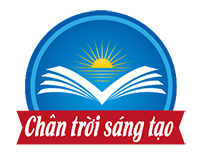Đề khảo sát đội tuyển khối 11 môn Tiếng Anh năm học 2013 - 2014 - THPT Nguyễn Trãi, Thái Bình
Đề kiểm tra Tiếng Anh lớp 11 nâng cao
Mời quý thầy cô và các em học sinh tham khảo Đề khảo sát đội tuyển khối 11 môn Tiếng Anh năm học 2013 - 2014 - THPT Nguyễn Trãi, Thái Bình để ôn tập cho kỳ thi học sinh giỏi lớp 11. Đây sẽ là tài liệu học tập, giảng dạy và ôn luyện vô cùng hữu ích cho các em.
- I. Choose one word whose stress pattern is different from the other.
- Câu 1:
- Câu 2:
- Câu 3:
- Câu 4:
- Câu 5:
- II. Choose the word which has the underlined part pronounced differently from the rest.
- Câu 6:
- Câu 7:
- Câu 8:
- Câu 9:
- Câu 10:
- III. Choose the best answer A,B,C or D complete each sentence.
- Câu 11: Can you _________ out the answer to number 2?
- Câu 12: A: Do you still live there? B: No, __________. We’ve moved to a new house.
- Câu 13: I’m not particular. I’ll wear __________ of your dresses that fits me.
- Câu 14: It is imperative that this letter __________ immediately.
- Câu 15: The pub was so crowded that he could __________ get to the bar.
- Câu 16: Could you stand___ for me and teach my English class tomorrow morning, John?
- Câu 17: ___ had they recovered from the first earquake when they felt the second tremor.
- Câu 18: You are under no obligation to help as assistance in purely _______.
- Câu 19: The classroom is empty. I think they____________ to the library.
- Câu 20: _____ advertising is so widespread, it has had an enormous effect on the other people.
- Câu 21: The prisoner escaped by ______ of a rope lader.
- Câu 22: But for their help, he _________.
- Câu 23: "Mind your business" - "_________"
- Câu 24: Wasn’t it you yourself ______ the door open?
- Câu 25: So little _________ that he failed the examination.
- Câu 26: _______ you don’t like her has nothing to do with the matter.
- Câu 27: I hope this headache will _________ soon.
- Câu 28: All the sentences below use ‘the’, which one is correct?
- Câu 29: We have just built _____.
- Câu 30: I walked away as calmly as I could _____ they thought I was a thief.
- Câu 31: “How long does it take to get to the City Library from here?” “__________ “
- Câu 32: The teacher asked a difficult question , but finally Ted ________ a good answer.
- Câu 33: Research in the work place reveals that people work for many reasons _______.
- Câu 34: It was a horrible ride through pouring rain. _________ he had a puncture and for the last hour had to push the bicycle.
- Câu 35: “Your parents must be proud of your result at school.” “__________ “
- IV. Choose the underlined word or phrase in each sentence that needs correcting.
- Câu 36:The main divisions of geologic time, called eras, are subdivided in periods.
- Câu 37:
One of the greatest of mountains climbers, Carl Blaurock was the first to climb all of the mountains higher than14,000 feet in the United States.
- Câu 38:The modern American dictionary is typically a single compact volume publishing at a modest rate.
- Câu 39:Benjamin Franklin, a famous American statesman, author, and scientist, born in 1709 and lived to the age of eighty.
- Câu 40:She wishes we didn’t send her the candy yesterday because she’s on a diet.
- V. Mark the letter A, B, C, or D on your answer sheet to indicate the word(s) OPPOSITE in meaning to the underlined word(s) in each of the following questions.
- Câu 41:A chronic lack of sleep may make us irritable and reduces our motivation to work.
- Câu 42:
We'd better speed up if we want to get there in time.
- Câu 43:
She is a very generous old woman. She has given most of her wealth to a charity organization.
- VI. Mark the letter A, B, C, or D on your answer sheet to indicate the word or phrase that is CLOSEST in meaning to the underlined part in each of the following questions.
- Câu 44:Although they hold similar political views, their religious beliefs present a striking contrast.
- Câu 45:
I think we have solved this problem once and for all.
- VII. Read the passage and choose the best answer.According to airline industry statistics, almost 90 percent of airline accidents are survivable or partially survivable. But passengers can increase their chances of survival by learning and following certain tips. Experts say that you should read and listen to safety instructions before takeoff and ask questions if you have uncertainties. You should fasten your seat belt low on your hips and as tightly as possible. Of course, you should also know how the release mechanism of your belt operates. During takeoff and landings you are advised to keep your feet flat on the floor. Before takeoff you should locate the nearest exit and an alterative exit and count the rows of seat between you and the exits so that you can find them in the dark if necessary
In the even that you are forewarned of the possible accident, you should put your hands on your ankles and keep your head down until the plane come to complete stop. If smoke is present in the cabin, you should keep your head low and cover your face with napkins, towels, or clothing. If possible, wet these for added protection against smoke inhalation. To evacuate as quickly as possible, follow crew command and do not take personal belongings with you. Do not jump on escape slides before they are fully inflated and when you jump, do so with your arms and legs extended in front of you. When you get to the ground, you should move away from the plane as quickly as possible, and never smoke near the wreckage - Câu 46: What is the main topic of the passage?
- Câu 47: Travelers are urged by experts to read and listen to safety instructions?
- Câu 48: According to the passage,airline travelers should keep their feet flat on the floor……
- Câu 49: According to the passage, which exits should an airline passenger locate before take off …..
- Câu 50: It can be inferred from the passage that people are more likely to survive fires in aircrafts if they _____ .
- Câu 51: Airline passenger are to do all of the following EXCEPT
- Câu 52: The word “evacuate” in the second paragraph is closes in meaning to_______.
- Câu 53: The word “inflated” in the second paragraph is closes in meaning to_______.
- Câu 54: What does the paragraph following the passage most probably discuss?
- VIII. Choose the best answer A, B, C or D to complete the reading passage below.
HOW WE READ
Why did you decide to read this, and will you keep reading to the end? Do you expect to understand every single part of it and will you remember anything about it in a fortnights’ (55) _________? Common sense (56) ________that the answers to these questions depend on “readability” – whether the (57) _______ matter is interesting, the arguments clear and the layout attractive. But psychologists are discovering that to (58) __________ why people read – and often don’t read – technical information, they have to examine not so much the writing as the reader.Even the most technically confident people often ignore instructions for the video or home computer in favour of hands-on experience. And people frequently (59) ________ little notice of consumer information, whether on nutritional labels or in the small print of contracts. Psychologists researching reading (60) ________ to assume that both beginners and (61) ______ readers read everything put in front of them from start to finish. There are (62) ________ among them about the role of eyes, memory and brain during the process. Some believe that fluent readers take (63) ________ every letter or word they see; others (64) ________ that readers rely on memory or context to carry them from one phrase to another. But they have always assumed that the reading process is the same: reading starts, comprehension occurs then reading stops. - Câu 55:
- Câu 56:
- Câu 57:
- Câu 58:
- Câu 59:
- Câu 60:
- Câu 61:
- Câu 62:
- Câu 63:
- Câu 64:
- IX. Read the passage and choose the best answer.
I just want to introduce the next area we’ll cover: the food chain. Food chains are divided into three types. The first one is the predator( [‘predato(r)]: dong vat an thit) chain, in which larger animals feed on smaller ones, such as when a bird eats a fish. The second is the parasite chain, in which smaller animals live off larger ones, such as a tapeworm living in a eat’s intestines. And the third type is the saprophytic chain in which a micro-organism feeds off dead matter.
In each type of chain, potential energy is lost at each level. Let’s take the example of a green plant. It gets energy from the sun by photosynthesis, but can use only about 2 or 3 percent of the energy that falls on it. The plant is then eaten by a rabbit, but the rabbit can use only about 10 percent of the potential energy of the plant. The rabbit is then eaten by a fox, which can use about 12 - 15 percent of the energy from the rabbit. And finally, the fox is eaten by a mountain lion. As you can see, at each step the percentage of energy obtained increases, but all in all, a great deal of energy is lost at each step.
That’s all for today. Read the next chapter in your books. We’ll go on with more about the food chain next time. - Câu 65: What is the major topic of this lecture?
- Câu 66: Which of the following is an example of a predator chain?
- Câu 67: How much of the potential energy from the sun can a plant use?
- Câu 68: What happens at each step of the food chain?
- Câu 69: What is eaten in a saprophytic chain?
- X. Choose the sentence which is closest in meaning to the one in italics.
- Câu 70: On their trip to Newcastle, John and Bill took turn driving.
- Câu 71: Without skillful surgery he would not have survived the operation.
- Câu 72: While I strongly disapproved of your behaviour, I will help you this time.
- Câu 73: He never suspected that she was a witch.
- Câu 74: If only you told me the truth about the theft.
- Câu 75: We think he was in London last year.
- XI. Choose (A, B, C, D) that is best written based on the words provided.
- Câu 76: Marie Curie /first scientist/ wintwo Nobel Prize/ science.
- Câu 77: build/ hand/ car/ superb condition.
- Câu 78: We / not allow / go out in the evening / make / finish all homework / go to bed.
- Câu 79: Would/ rather/ you/ type/ letter/ away
- Câu 80: She suggest/ take/ plane this evening/ or/ go/ train tomorrow
- Đáp án đúng của hệ thống
- Trả lời đúng của bạn
- Trả lời sai của bạn










